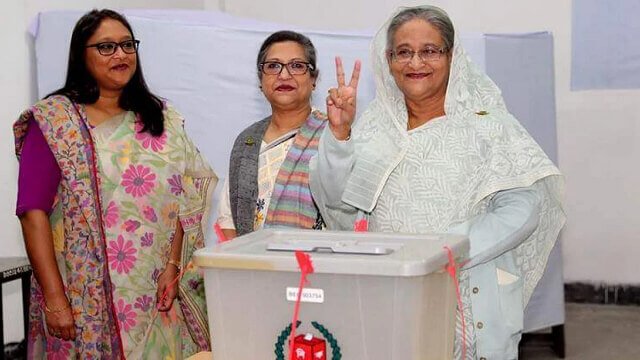
The political landscape in Bangladesh witnesses a significant turn as the election results reveal the victory of Sheikh Hasina, securing her fourth consecutive term in office. However, the win comes amidst an opposition boycott, raising pertinent questions about the country’s political dynamics and future governance.
Sheikh Hasina’s Re-election
The triumph of Sheikh Hasina in the recent elections marks a historic moment, solidifying her position as the leader of Bangladesh for a fourth consecutive term. Her victory underscores her enduring popularity and widespread support among the electorate.
Political Legacy and Development Agenda
During her tenure, Sheikh Hasina has been instrumental in driving Bangladesh’s socio-economic development, focusing on infrastructure, education, and economic reforms. Her re-election amplifies the trust bestowed upon her governance and development-oriented policies.
Challenges Amidst Opposition Boycott
The opposition’s decision to boycott the elections poses challenges to the legitimacy and inclusivity of the electoral process. The absence of a significant opposition presence raises concerns about the democratic fabric of the nation.
Implications and Political Dynamics
The landslide victory for Sheikh Hasina’s party amid the opposition’s absence alters the political landscape, raising pertinent questions about the balance of power and effective checks and balances within the governing structures.
Calls for Inclusive Governance
The opposition’s absence calls for introspection and endeavors towards fostering a more inclusive political environment, ensuring representation and participation from diverse political ideologies for a robust democratic framework.
International Observations and Concerns
The election results draw attention from international observers, highlighting the importance of upholding democratic principles and ensuring fair electoral processes for global confidence in Bangladesh’s governance.
Path Ahead: Addressing Polarization and Inclusivity
As Bangladesh moves forward, it faces the critical task of reconciling polarized political ideologies and fostering a more inclusive political environment that accommodates diverse voices for comprehensive governance.
Dialogue and Reconciliation
Meaningful dialogues between the ruling party and the opposition are essential to bridge the gap, promote reconciliation, and establish a conducive environment for constructive political discourse.
Upholding democratic values, ensuring fair representation, and promoting pluralism are vital for nurturing a democratic society that respects diverse opinions and upholds the rights of all citizens.